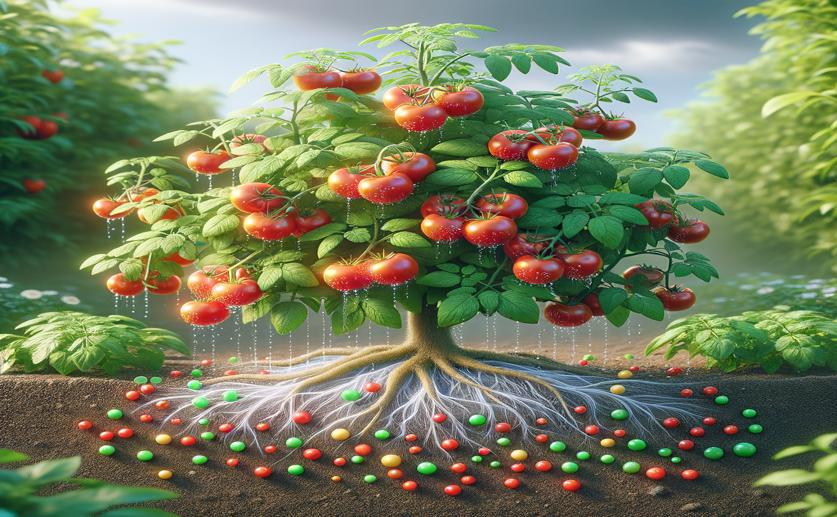
Innovative Hydrogel Fertilizer Enhances Tomato Growth and Water Retention
Jenn Hoskins
3rd June, 2024

Image Source: Natural Science News, 2024
Key Findings
- Researchers from Hassan II University and Mohammed VI Polytechnic University developed an eco-friendly hydrogel that slowly releases nitrogen to plants
- The hydrogel significantly improved tomato plant growth and yield, especially under water-stressed conditions
- The hydrogel showed no toxicity and enhanced germination rates, making it a promising solution for sustainable agriculture
AgricultureSustainabilityPlant Science
References
Main Study
1) Urea-rich sodium alginate-based hydrogel fertilizer as a water reservoir and slow-release N carrier for tomato cultivation under different water-deficit levels.
Published 31st May, 2024
https://doi.org/10.1016/j.ijbiomac.2024.132814
Related Studies
2) Global food demand and the sustainable intensification of agriculture.
3) A comprehensive review on starch: Structure, modification, and applications in slow/controlled-release fertilizers in agriculture.
4) Starch-based controlled release fertilizers: A review.
5) Sustained-release nitrogen fertilizer delivery systems based on carboxymethyl cellulose-grafted polyacrylamide: Swelling and release kinetics.



 5th May, 2024 | Jenn Hoskins
5th May, 2024 | Jenn Hoskins